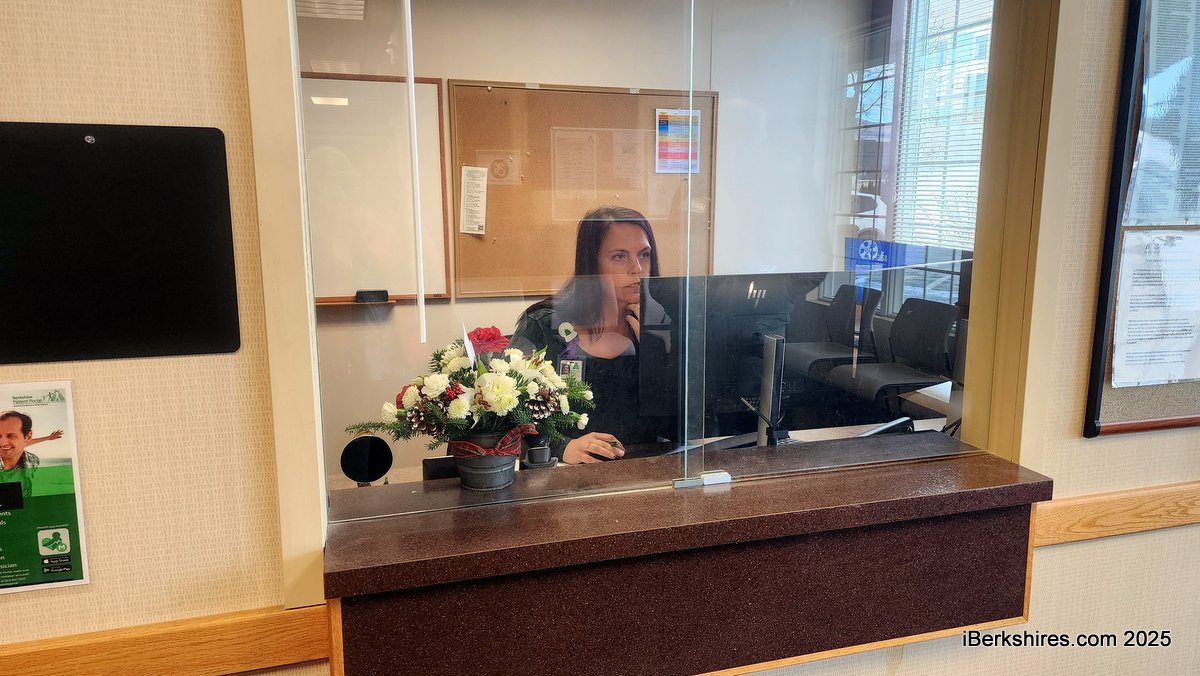Letter: Response to Bilal Ansari and DIRE
 |
To the Editor:
Good Morning, Bilal,
I am now on a kinder, gentler computer that I hope will not whisk my responses into the black hole of cyberspace.
I hope others will join in this conversation because I have been pretty much out of public life for a long time. In fact, I am an avowed hermit. My memory may need some help.
First, let me say that the DIRE committee seems to me very unique. I can remember no town committee that had even a similar mission. DIRE is asking us to look in the mirror, to search our minds, our hearts, even our souls, then "purify" (your word and Mr. King's). Your mission has spiritual overtones, if not religious overtones. Many people feel that a town committee — especially an appointed town committee-is NOT an appropriate venue for such discussion. Indeed, there are many people who believe articles like the Pledge articles do not belong on a town warrant, especially as the last two articles at a very arduous town meeting. But that is discussion for another day. Again, I do not remember any TOWN GOVERNMENT committee even similar to DIRE. Readers, correct me, please. Even if I am incorrect, we all are traveling in very new territory. We must be circumspect.
You asked if I had ever served on a board that I felt was inclusive. The one that first comes to mind is the Planning Board. (I served when the board was appointed not elected, so you know that was in the Dark Ages.) We were five people: one a Williams College professor with a strong background in environmental science; one a real estate and insurance business person from a long-established Williamstown farm family; one a local motel owner who had a graduate degree in engineering and was also from a long-established farm family; one was a foreign language teacher whose family owned a local nursery (plants not kids). At that time, I had taught at Mount Greylock for seven years and was a stay-at-home mother with two rambunctious little kids. Our five backgrounds were different and complemented each other. We had some pretty heated differences at times, but I think we had some decent outcomes.
Let me describe the hands-down most difficult committee on which I ever served — town or otherwise. I was on the Williamstown Elementary Committee for five years. I remember it as being composed of five people of very similar backgrounds. All were middle age. All had had children in Williamstown schools. All had advanced degrees. All had at least some teaching experience in public schools. What a cornucopia of expertise, yes? No! Way too much sameness! To serve responsibly, we had to keep track not only of our own thoughts but also we had to imagine the needs and concerns of many others. We were not always successful. At least we were aware of that shortcoming and tried to make up for it. When we created a superintendent search committee, we had a wonderful assortment of souls. The group dynamics were delightful, and in my opinion, we achieved a good outcome.
Bilal, you asked about "the most appropriate words and concepts" spoken by Williamstown residents. I have no clue as to how to answer that; we are very, very different. I think perhaps I did not make clear that I was cautioning the committee not to use — I hate to be blunt, but here it is — JARGON; for example, I have rudimentary training in mediation and some experience with peer counseling. I thought I was somewhat conversant with the concept of "restorative justice." The way DIRE uses the word seems different to me. There are other terms bandied about like "microaggression," "systemic racism," and so forth that are not part of everyone's working vocabulary. When you so frequently use these terms, for many they might as well be Cantonese. Please know there is a strong teaching component to your work. And — I am going to be blunt again — DO NOT BE CONDESCENDING IN YOUR TEACHING. An effective teacher LEARNS at least as much as teaches.
As for vitae. I would really appreciate knowing a bit of the "stories" (yes, background and biases) of ALL the people who are serving in my town. Elected members, if not challenged, campaign, speak at debates, and so forth. We know a bit about them. Appointed members often are complete mysteries. As for the police department, I think knowing their stories is very important. I am happy to send you my vita if you would like.
Lastly, Williamstown is NOT a sprawling city. We sprawl, but many of our inhabitants are trees and fields and critters. Our main streets die at dusk. Our life style is very different from cities. Many — especially young people — would say "boooooooring." And many of us old folks would say, "perfect." Do we have racism here? Of course. We are human beings, and fear of "the other" manifests itself in many ways. Do we have systemic racism in our policies and practices? Probably. Let us keep going on the very good work DIRE is doing on that front.
BUT ... my principle point is that if we were to take a well-constructed survey of our flaws that the vast majority of people see in the Williamstown community, racism would NOT be on top of the list. Prejudice because of economic and educational inequities, yes. In elementary and secondary schools, bullying, yes. Again, I hope others chime in. Many people feel that DIRE is unjustly making a major issue out of an issue that is not a major issue for the vast majority of people in this town. And, yes, we must be mindful and empathetic of "underrepresented minorities." It feels as though you and many "grass roots groups" are pointing a finger of shame that is not warranted. And let me be very clear, if I have my head in the sand, educate me. But gently.
Bilal, I truly want to understand you. I truly want our community to be the best we can be. If I have not made clear my responses to any of your questions, please let us continue this conversation.
Donna (and her kinder gentler computer).
Donna Wied
Williamstown, Mass.
Tags: DIRE,
















